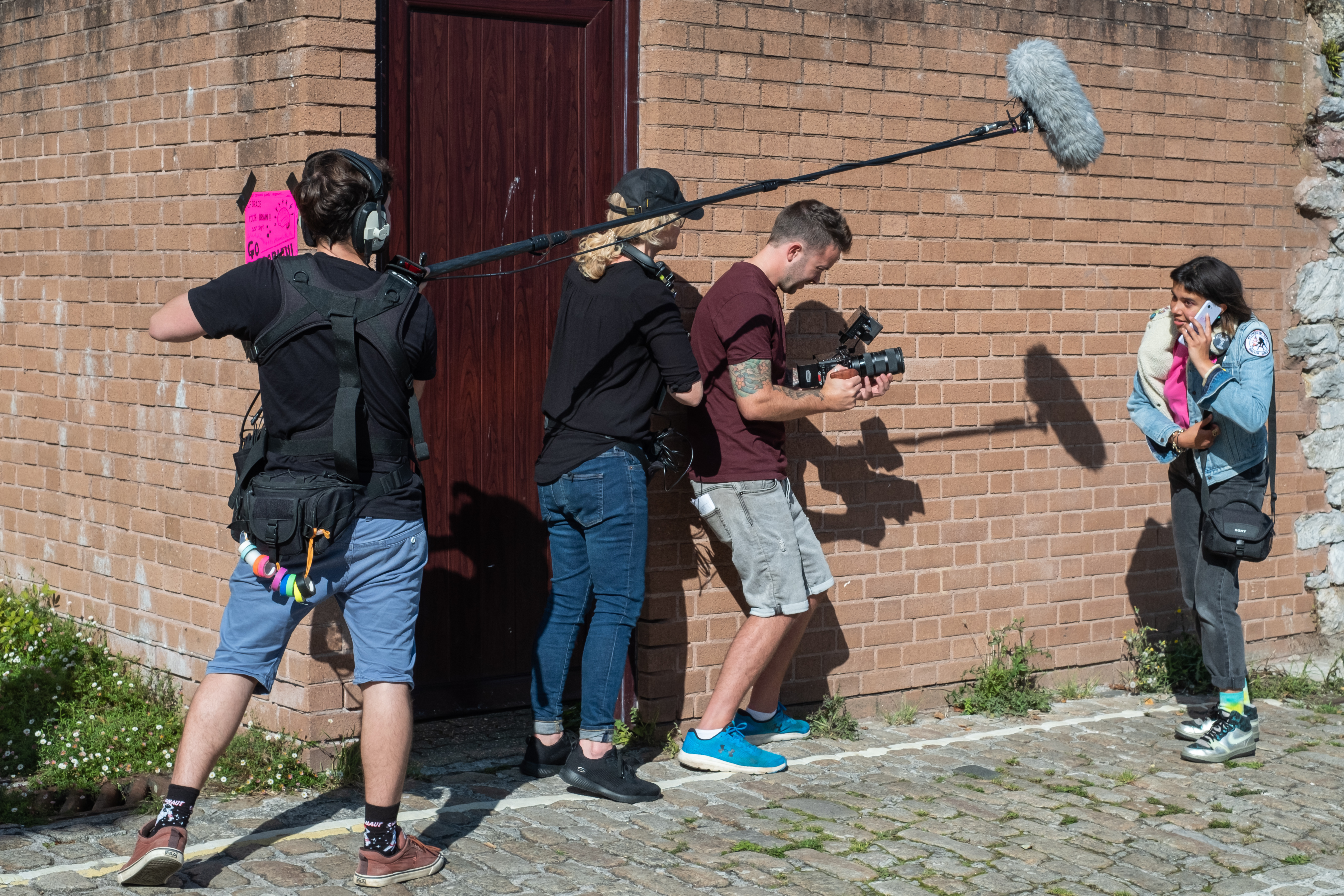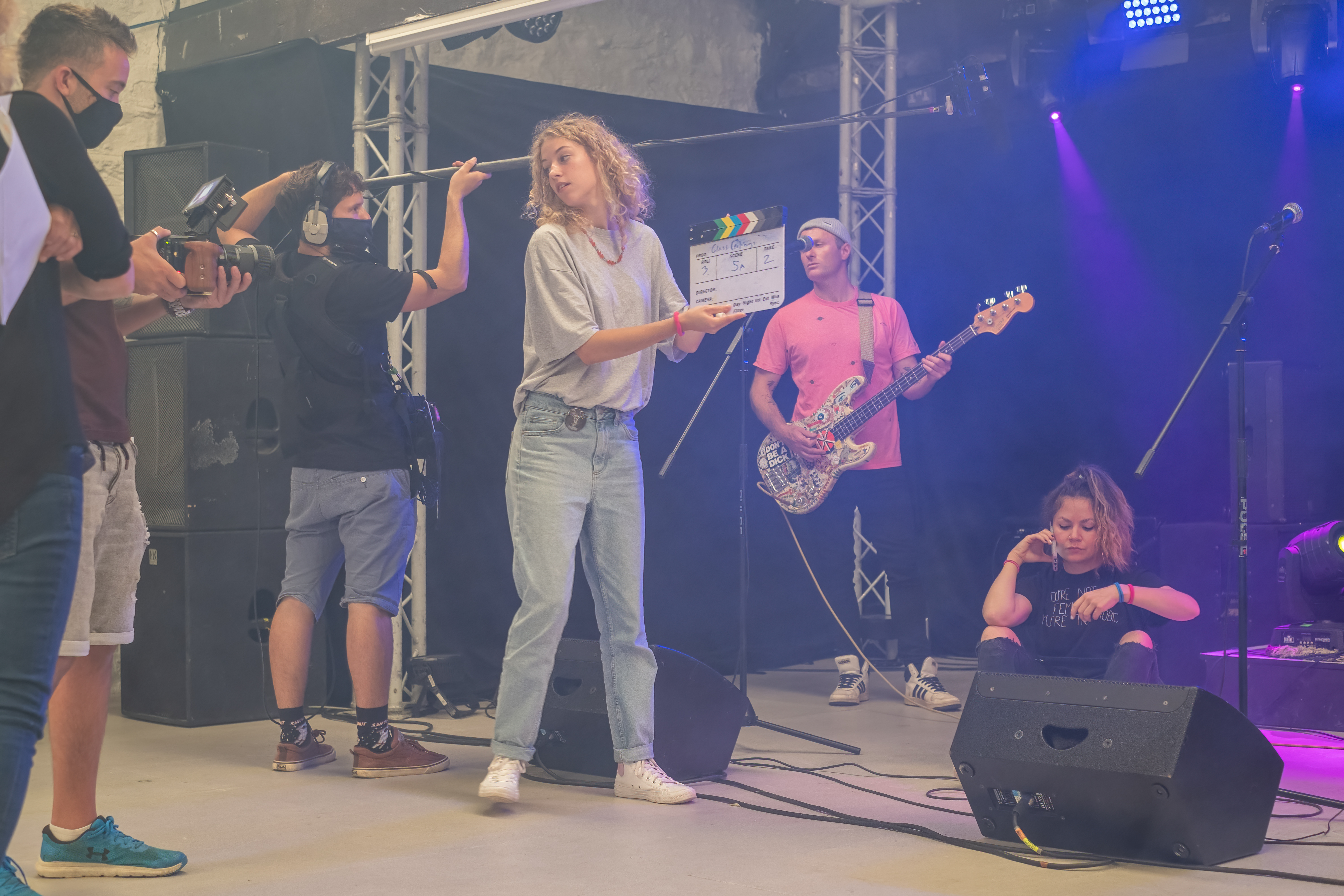Posted on: 8 Jun 22
Glass Ceiling Games Filmmaker Jake Cauty Shares his Top 5 Shooting and Editing Tips
Jake Cauty is the award-winning filmmaker, DOP and editor who shot and edited The Glass Ceiling Games trailer and Kickstarter film. His work is all about emotional impact and he's travelled the world on projects for Disney, Sony, Paralympic Games and more; some of his films have generated views in the billions... He approaches everything from the perspective of how to make it visually enchanting and leave the audience with something to remember. You can get in touch via his website.
In this blog, he shares his Top 5 shooting and editing tips from his vast experience.

1. Don’t overshoot, or undershoot!
This goes both ways. A clear brief is important so you know what to capture. An editor hates masses of footage as well as scraping the bottom of the barrel. Some good prep work will make sure you get the shots you need and avoid rushing around grabbing shots that won’t get looked at.
2. Don’t overthink it
I’ve seen hundreds of edits where the story becomes lost with overcomplicated effects and transitions. Sure, sometimes the story might demand it or benefit from it. For me, there’s nothing better than stripping back a story and letting it play out without any distractions. Add some sound or music in there to compliment it and enjoy the process.
3. Eye up the shots
Sounds strange but it’s true. Having edited thousands of projects I’ve seen it many times. If you’re shooting something, ask yourself if it can be better. Let’s say you’re filming a guitarist and he’s playing an emotional track. The key here is emotion. Don’t just point and shoot. Get in there, get up close, use a steady hand, create some depth and maybe shoot through something for a different perspective. If the shot doesn’t excite you, it won’t excite the viewer. This can be applied to anything! If you’re shooting a dull interview, make it special.

4. Test your work
It’s all fun and games staying up for hours working on an edit after a full day of editing. It’s late and you’re surrounded by coffee cups. There’s only so much you can do in a day. There’s only so much your creative brain can do in one go. I’ve learnt the importance of showing my work to people before sending it to a client, or uploading it, etc. My partner often watches my work and comments on things that make it better. Not only this, pressing play with someone else in the room will make you view it in a completely different way. When you’re alone you’re concentrating on the technicalities. You’ll be surprised at how differently you view your work with someone watching it next to you.
5. Be unique!
This applies to shooting and editing. Or anything creative. Don’t get caught up in which software is the best, they’re all basically the same. Be inspired by people's work, but approach things differently. I’ve seen a lot of people mark out the beats of a song and change the shot on all those markers. The song went on for 3 minutes so the viewer knows what’s happening after 10 seconds and it gets boring. Have fun with the process. Edit on a beat, then off-beat, then cut a movement on a beat, or make something happen on a beat. Keep the audience on their toes. Find your way of creating and you’ll stand out, and you’ll have a lot more fun.